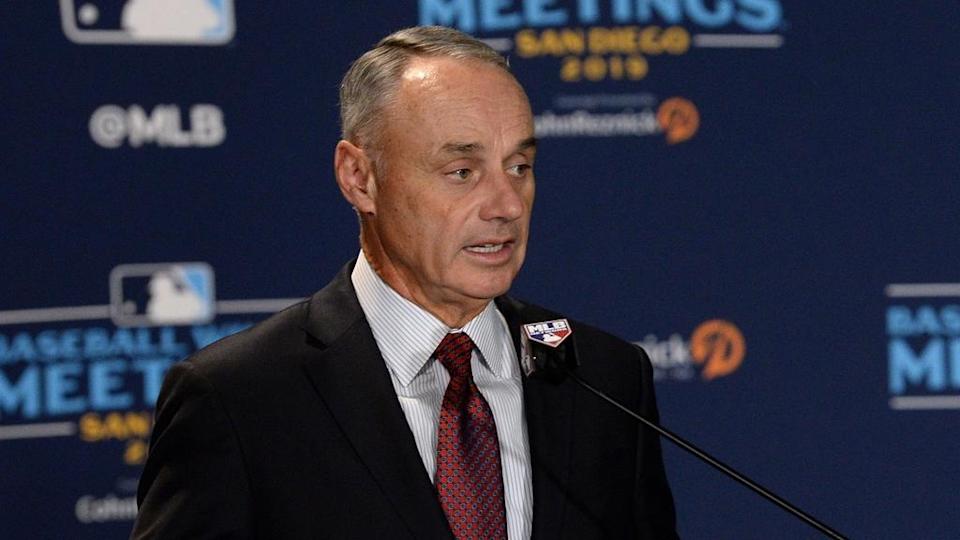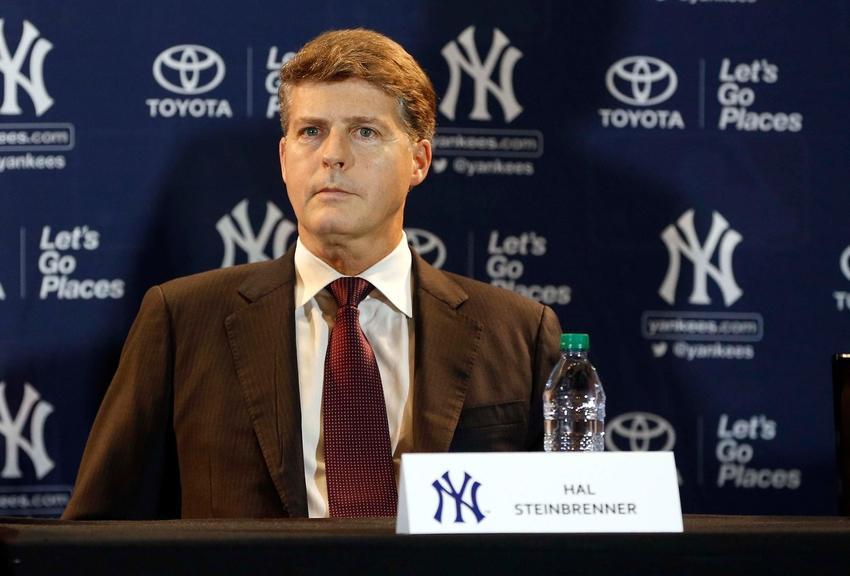
Imagine you’re Hal Steinbrenner.
You want the Yankees to win a championship, but you are also on MLB’s labor policy committee and feel an obligation to respect the rules that you helped set.
Now imagine you’re Steve Cohen.
You’re the wealthiest owner in baseball and are hungry for a championship within three to five years. You have the money to pay players handsomely, and you’ve begun to do just that.
Now think how you would feel, if you were either of these men, about the luxury tax penalties that MLB is proposing in its labor fight with players. You might just be unhappy that these rules make it more difficult for your team to spend what it deems necessary to win.
Earlier this week, I wrote about how the current proposal could function as a de facto salary cap (an interpretation that MLB strongly disputes, pointing to its willingness to end draft pick compensation for free agency, among other concessions).
But there would be another impact of these policies, felt deeply in New York, Los Angeles, Boston, San Diego and any other market where ownership is willing to spend money, but wary of luxury tax penalties and owner peer pressure.
To review: Under the expired CBA, teams that exceeded the luxury tax (or competitive balance tax) threshold for the first time paid a 20 percent tax on the first threshold, a 32 percent tax on the second threshold, and a 62.5 percent tax on the third threshold.
Second time offenders paid 30, 42 and 75 percent, and third-time offenders paid 50, 62 and 95 percent. There were no losses of draft picks.
Under MLB’s current proposal, first time offenders would pay a 50 percent tax at the first threshold, 75 at the second and 100 at the third. That is a massive increase, and it only gets more severe.


Exceeding the second and third tier would result in the loss of second and first-round draft picks, respectively.
MLB’s recent offer removed from its previous proposal the loss of a third-round pick for exceeding the first threshold.
Remember when Cohen faced resistance in his bid to purchase the Mets, in part because other owners were worried that he would spend wildly?
Four owners — Jerry Reinsdorf of the Chicago White Sox, Arte Moreno of the Los Angeles Angels, Bob Castellini of the Cincinnati Reds, and Ken Kendrick of the Arizona Diamondbacks — voted against Cohen. Steinbrenner voted “yes,” and Yankees president Randy Levine was an ally to Cohen during the process.
Well, now Cohen has begun to spend like Mets fans hoped and budget-conscious owners feared.
It seems awfully coincidental that his competitors have devised a proposal that could prevent him from ever doing it again. Even Cohen would have to think long and hard about losing high draft picks.
As for Steinbrenner, he tries to behave within the parameters of the rules that his own committee helps to set.


It must be tricky in that room, trying to land on concepts that markets of all sizes can approve (it must also be extremely tricky to be MLB’s Rob Manfred and Dan Halem, trying to please all of these owners and find common ground with the Players Association. Talk about threading a needle).
But if the luxury tax threshold were higher, and the penalties for exceeding it less severe, Steinbrenner would almost certainly take advantage of that and spend even more. He wants the Yankees to win, after all.
Last season, Steinbrenner funded the second-highest payroll in the game. If you’re looking for owners to accuse of being spendthrift, aim your criticism at, say, the Pittsburgh Pirates or Miami Marlins.
These teams are among the many who would benefit from the Yankees and Mets setting limits and avoiding what some in the industry call “runaway spending.” And we’re not even getting into revenue sharing today.
On the players’ side, MLB’s current CBT proposal is considered unserious. It’s highly likely that the penalties in this area will have to change before the sides reach an agreement.
If they don’t, the Yankees, Mets, and their fans could be profoundly affected.
